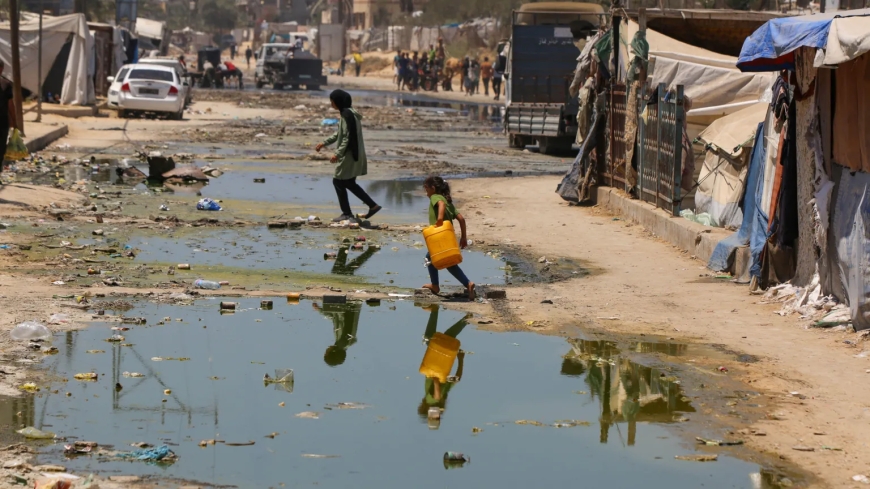Gaza City - The World Health Organization (WHO) has expressed grave concerns about a potential outbreak of the highly infectious polio virus in Gaza following the detection of traces in wastewater. Dr. Ayadil Saparbekov, head of the WHO’s team in the Palestinian territories, emphasized the urgency of the situation, noting that a comprehensive risk assessment is underway. Health workers are currently advising Gaza’s 2.3 million residents on protective measures, although the deteriorating water and sanitation infrastructure complicates these efforts.
Polio, transmitted through faecal matter and, less commonly, respiratory droplets, can cause paralysis and death. The virus was detected in sewage samples from two locations in Gaza a month ago, signaling possible circulation, although no paralytic cases have been reported yet. In response, the Israeli military has initiated vaccinations for its soldiers.
The WHO and UNICEF suggest that a mass vaccination campaign may be necessary in Gaza. However, logistical challenges, including delays in aid delivery and severe security risks, impede the implementation of such a campaign. The Israeli military claims to be collaborating with various organizations to deliver vaccines, with 300,000 doses sent to Gaza since the conflict between Israel and Hamas escalated in October.
Immunization rates in Gaza and the West Bank were notably high before the conflict, with polio vaccine coverage at 99% in 2022, though it declined to 89% last year. The UN agency attributes this drop to the severe disruption of Gaza’s health system. Only 16 of the territory's 36 hospitals are partially operational, and the health infrastructure is further strained by security issues, access obstructions, population displacement, medical supply shortages, and poor water quality.
Dr. Saparbekov highlighted the dire living conditions, with many people sheltering in overcrowded facilities with limited access to sanitation and safe drinking water. The Hamas-run health ministry in Gaza recently warned of a looming “health catastrophe” due to polio traces in wastewater around displacement camps and residential areas.
The WHO has underscored the necessity of a ceasefire to facilitate an effective public health response. Echoing this sentiment, eight Israeli public health professors, in an op-ed in Haaretz, stressed the importance of immediate action to protect both Palestinian and Israeli infants who have not completed their vaccinations.
“We know what needs to be done. It must be done for the sake of all residents of the region. This is not about politics. This is about health and life,” they wrote.
The call for a coordinated health response highlights the urgent need for stability and cooperation to prevent a public health crisis amid ongoing conflict.














































